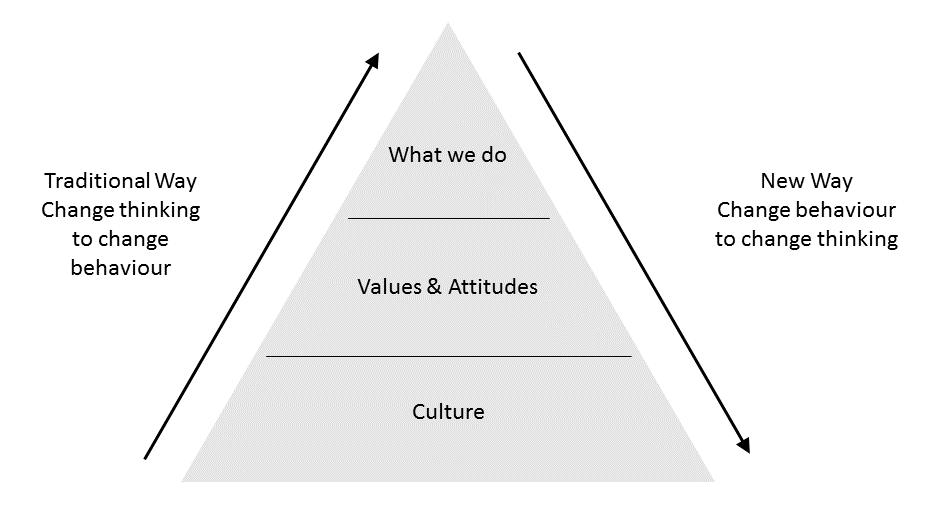The world of work is changing. There is no place where this is truer than in the world of Information Technology.
With these changes, being technically sound is not good enough, there are behavioural, or soft skills that will be required.
It’s one of the reasons that when I started my new position I stated that I didn’t have a technology strategy in so much that I had a behavioural change strategy. One where that no matter where the technology went they can be ready.
Change the behaviour and change thinking.

This behaviour strategy revolved around introducing DevOps and development of these four areas that I consider to be critical for the future of work.
1. Analytical and strategic thinking
As things change quickly, you need to think ahead, and then be able to put the pieces in place to get there. For this you need to be able to look at all the trends and analyse it, then put a strategy in place to take advantage of the opportunities.
We need to think of the entire process as a system and see how we can increase productivity and flow through the process. Let’s call this… I don’t know… systems thinking.
And use data to make better decisions or to just make a damn decision.
This aligns with the 1st Way of DevOps, thinking from left to right.
Skate to where the puck is going to be, not where it has been. – Wayne Gretzky
2. Think of the end customer and user-centred design
In the world of automation, the things that will make humans, well, human, is our ability to connect. We often refer to this as Emotional Intelligence.
This is going to be a key skill in the future of work. It will allow us to develop services that help the customers and not cater for ourselves, such as novel technological solutions that add little value to the customer. Yeah, that’s a pretty cool server, but did it reduce the wait times of our customers?
Take time to speak with customers, even if there are no issues or projects ongoing so we can understand them.
This aligns with the 2nd Way of DevOps, increase and amplify feedback loops.
We can’t solve problems by using the same kind of thinking we used when we created them. – Albert Einstein
3. Creativity and innovation
Creativity and innovation is a key part of ensuring that we can stay relevant. This means thinking of new ways to use emerging technology to meet business and personal goals. It also means doing experiments and trying new things.
This aligns with the 3rd Way of DevOps, the development of a culture of experimentation and learning.
If you want something you’ve never had, you must be willing to do something you’ve never done. – Unknown
4. Active and Purposeful Learning
In a fast-changing environment, you need to keep up with the new technologies otherwise you may get left behind. This means actively taking time to learn new things, and also learning from mistakes.
It also means not being afraid to make mistakes and developing a growth mindset, whereby you don’t believe that your abilities are fixed, but that you can change.
I’ve also encouraged my team to be purposeful with their learning, in that don’t learn as they do, which is reactive by nature, but choose to learn something even if it’s not actively in use. And also teach others so that they may learn as well.
This also aligns with the 3rd Way of DevOps, the development of a culture of experimentation and learning.
Learning is not compulsory… neither is survival. – W. Edwards Deming
The end result
The best-laid plans of mice and men often go awry. – Robert Burns
Unfortunately, all my plans didn’t go as expected. Much of the team became frustrated, and I too in return, because things weren’t coming along. Some members of the team have become disengaged and just going with the flow, which I’ve been told is to be expected when implementing change. That didn’t help me feel any less that I’d failed them.
Time was short, but I was hopeful nonetheless.
Fortunately, I’ve had success with at least one of them, which could hopefully open a gateway for others to follow. That is to be seen.